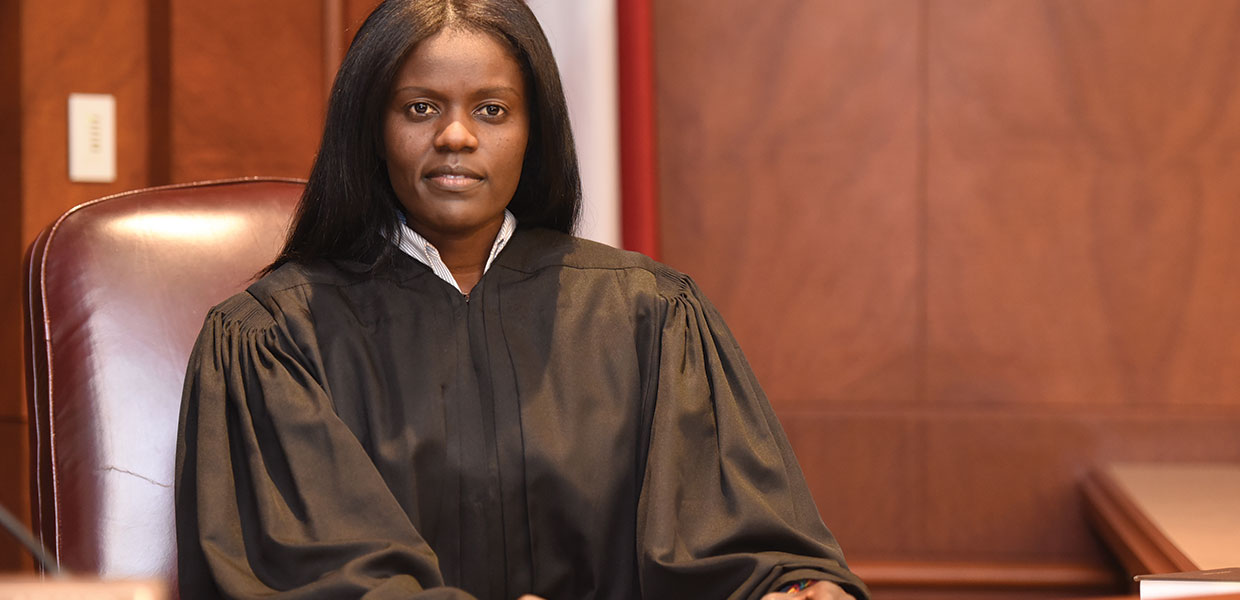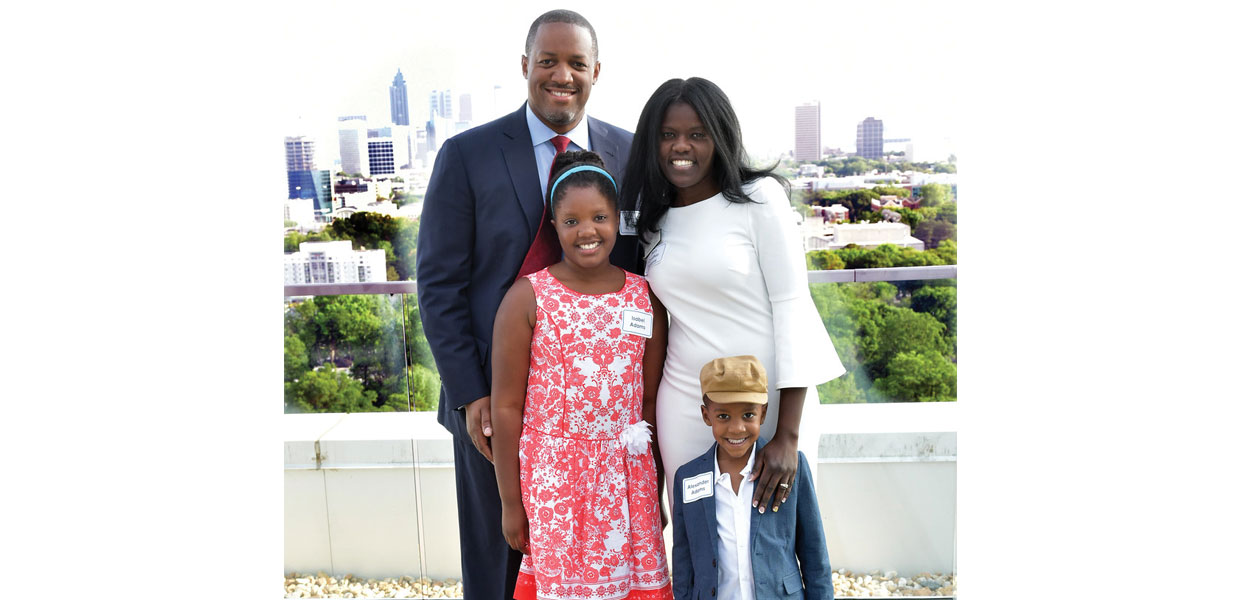

When did you know you wanted to become a lawyer and what was your motivation? How did your faith inform your decision?
I don’t know that I can pinpoint the exact moment that I decided I wanted to be a lawyer. For as long as I can remember, it was my chosen profession. I knew that it would be a career where I could excel. I have the ability to see both sides of an issue and advocate for either side.
I see life as a journey. On my journey, I am following Christ and going where He takes me. My faith is and always will be in the forefront of everything I do, and it was no different in choosing my career.
In what area did you specialize in your practice, and was it as fulfilling as you imagined when you began your journey?
I began my career as a prosecutor. I dealt with some pretty heavy cases while prosecuting. It was rewarding being the voice for victims of crime, including child victims in a lot of cases. Later, I opened my own law firm and practiced in the areas of criminal defense, juvenile and family law, and immigration law. Again, I felt fortunate that I was able to fight for my clients’ rights, and to make sure they were properly represented in the legal system.
What motivated you to want to move from your private practice to serving on the bench, and how are the two similar/different?
It was always my dream to join the Superior Court bench. I am blessed that Georgia Governor Nathan Deal selected me for this post. As an attorney in private practice, I handled cases in the areas of criminal defense, juvenile and family law, and immigration law. I have been fortunate in my career to sit on both sides of the aisle — first as a prosecutor, and then doing defense and civil work. As a judge, I will preside over some of the same types of cases I worked. Our courts are general jurisdiction courts, which means we handle both civil and criminal law actions. We preside over cases involving misdemeanors, contract disputes, and premises liability. We also preside over cases of divorce, title to land, and felonies involving jury trials, including death penalty cases.
You made history in two ways — by becoming the first female and the first person of color to serve on the bench in that circuit. What, if any, challenges have you experienced in the field of law because of your race or sex?
I am honored to have made history in Douglas County. My family and I have lived in Douglas County for about 14 years, and it is a great place to live and raise a family. I have also practiced in Douglas County and throughout the metro Atlanta area for over 14 years, and I have not encountered challenges because of race or gender. We have a strong legal community in Georgia, and I think it is reflected in the respect that we show each other as attorneys and jurists.
Of all the choices available to you for college, what led you to attend Oakwood University in Huntsville, Ala., and how did the experience there impact you spiritually and professionally?
For me, selecting Oakwood was about attending not just a Christian school, but an Adventist school. Before Oakwood, I had only attended public schools. Although I received a great education throughout, it seemed that most extracurricular activities were scheduled during Sabbath hours. I longed to participate, and found myself having to explain or justify to my friends and teachers why I could not participate in an event that was taking place on Sabbath. I chose Oakwood because I wanted to go to a school where others believe as I do. I did not want to go through four years of college feeling like I could not participate in extracurricular activities. Once I arrived, I fell in love with the atmosphere, the teachers, the campus.
Being surrounded by what I call “the religious experience,” of course I grew spiritually. Classes started with prayer; we were required to attend weekly chapel; and I was going to church because I wanted to, not because my parents were requiring me to go. I had found a place that allowed me to be myself without explanation. For me, that’s what was important at that stage in my life. Being in that nurturing environment helped me to excel academically.
Leaving Oakwood, I never felt unable to compete with others who had attended larger institutions. A young person needs that opportunity to become grounded on their own terms, and that is what I experienced at Oakwood.
One highlight that you are quick to mention about your Oakwood experience is about finding your husband there. What advice could you offer to young people, especially young women, to balance their social life with their studies to stay on track with their professional aspirations?
I prayed really hard before heading off to college. I had visited Oakwood previously, and I had an idea of the distractions I would face once I arrived. I believe that no matter where you end up, you have to be standing on a strong foundation. You have to determine in your mind that you are there to attain a goal, and ask God to help you when it looks like you are about to fall short. But, you can do that and still have fun and enjoy life.
You’ve shared how your native language, Haitian Creole, became a talking point in your interview process for the judge appointment. Are there some ways that your Haitian background has impacted your life in other ways, like shaping your values and goals?
As a child, I was resistant to the idea of speaking Creole. Kids just don’t like being different. But, as I grew older, I realized being bilingual was a gift to be treasured. After the 2012 earthquake in Haiti, my dad told me that I needed to help my people. The Haitian community needed to hear from someone who knew the law, and could speak their language. We are committed to family and looking out for each other. These are the values that keep you going when it feels like things are too difficult to keep going.
What would your advice be for young people thinking about a legal career?
I tell any young person who expresses a desire to study law or be an attorney that, if it is truly what they want to do, then go for it. Sometimes people are overwhelmed by all that is involved with becoming a lawyer — the law school admission test, law school, and then of course the bar exam. It is important to take things one step at a time. They should start by taking the Law School Admission Test (LSAT), and once that test is taken, it is easier to start applying to schools.
South Atlantic | June 2017



Comments are closed.